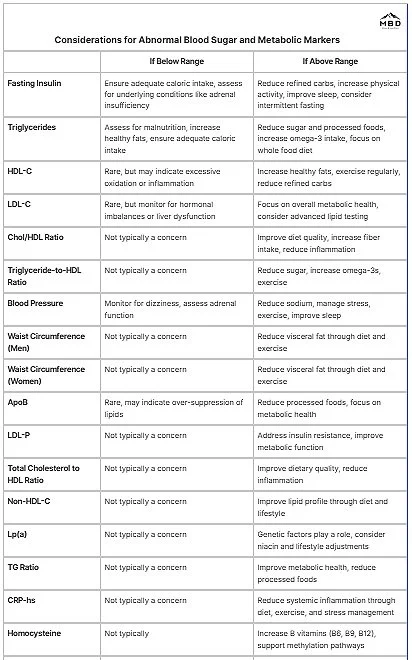What to Do When Your Lab Values Are Abnormal
“Prevention is better than cure.”
— Desiderius Erasmus
Functional medicine lab ranges provide early warning signs for potential health imbalances before they develop into full-blown disease. When your blood test results fall outside optimal ranges—whether too high or too low—it’s important to understand what these deviations may indicate and how to take action. By making targeted lifestyle changes, adjusting nutrition, and seeking medical guidance, you can support your body’s return to balance.
I went deep into lab values because I believe they are often misused. I broke down one long article into three more easily digestable ones.
In part one I wrote about functional lab ranges vs. conventional lab ranges.
In part two, I wrote about what these abnormal lab values mean for your health.
In part three, here, I’ll break down exactly what to do about these abnormal lab values.
These recommendations are not the only solutions, and different individuals may require personalized approaches based on their unique health conditions and medical history. Always consult with a healthcare professional before making changes to your health routine.
How to Respond to Functional Blood Test Abnormal Values
Thyroid Markers
Thyroid function plays a crucial role in metabolism, energy levels, and hormonal balance, making it essential to address any deviations from optimal lab values.
Blood Sugar and Metabolic Health
Maintaining balanced blood sugar levels is vital for metabolic health, preventing insulin resistance, and reducing the risk of chronic conditions like diabetes.
Inflammation & Cardiovascular Risk
Chronic inflammation and poor cardiovascular health can contribute to a range of diseases, making it critical to monitor and address abnormal lab markers in this category.
Disclaimer
I am not a doctor, and this article is for informational purposes only. Lab values can be influenced by various factors, and deviations from functional ranges do not necessarily indicate a specific disease or condition. Always consult with a qualified healthcare provider for personalized medical advice and proper interpretation of lab results.
Related:




